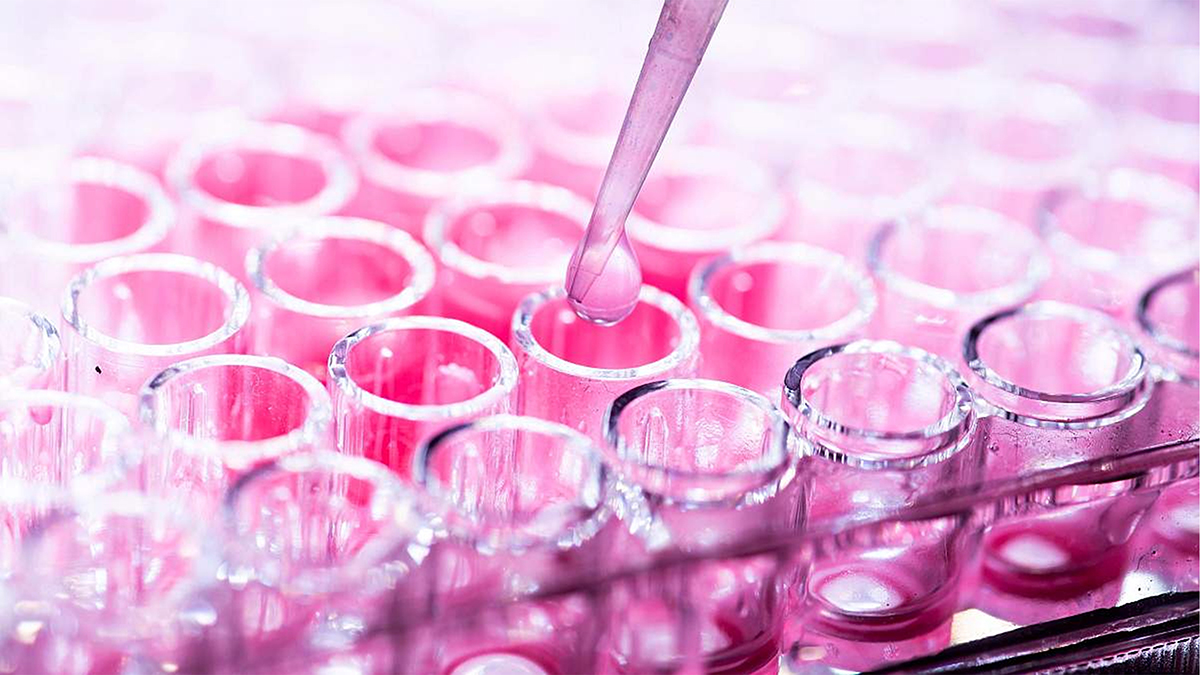Reposted from the Huntsman Cancer Institute.
New research from the University of Utah has found that lipids, a key feature of obesity, fuel tumor growth in an aggressive form of breast cancer. Findings from a National Cancer Institute-funded study, conducted in preclinical mouse models, suggest that breast cancer patients and survivors with obesity could benefit from lipid-lowering therapies—and that they should avoid high-fat weight-loss regimens, like ketogenic diets.
The interdisciplinary study led by Huntsman Cancer Institute (HCI) also shows that weight loss alone, without a corresponding reduction in lipid levels such as that induced by a ketogenic diet, fails to protect against breast cancer, highlighting the necessity of targeting lipid metabolism in obesity-associated cancer cases.
“The key here is that people have underestimated the importance of fats and lipids in the all-encompassing term that is obesity,” said co-author and HCI investigator Keren Hilgendorf, an assistant professor of biochemistry. “But our study shows that breast cancer cells are really addicted to lipids, and the abundance of lipids in patients with obesity is one of the reasons that breast cancer is more prevalent and more aggressive in these patients.”
The study targets triple-negative breast cancer, a fast-growing form that is more common in women under 40 and Black women, and is more prone to metastasis and recurrence. This form accounts for 10 to 15% of breast cancer cases. It’s called triple-negative because it’s negative for three receptors: estrogen, progesterone and HER2.
A high amount of lipids in the blood, known as hyperlipidemia, is a common condition associated with obesity. Hilgendorf and fellow HCI investigators Amandine Chaix and Greg Ducker conducted their research by analyzing mouse models on high-fat diets. They also used models that were engineered to have hyperlipidemia without other key markers of obesity, such as high glucose and insulin levels. In these models, the high lipids alone were enough to accelerate tumor growth.
“The idea is that lipids, which form the surface membrane of the cell, are like building blocks,” said Chaix, assistant professor of nutrition and integrative physiology. “If a cell receives the signal to proliferate and more building blocks are available, the tumor is going to grow more easily. We see that a high amount of lipids enables this proliferation.”
In this particular model, lowering the amount of lipids, in the presence of high glucose and insulin levels, was enough to slow down breast cancer cell growth. Mice and humans have important metabolic differences, but if the results in mice hold true in people, they could lead to better therapies and diet recommendations to slow cancer growth.
“We think this has therapeutic implications, because if you could just lower the lipids—which we already know how to do in patients, for example, with lipid-lowering medication—that could be a way to decelerate breast cancer growth. If we can target these high levels of fat in the blood, the cancer sufferers, because the lipids are no longer feeding the cancer,” Hilgendorf said. “But while our results in mice were striking, there are clear limitations in directly projecting these findings onto human patients. More research using human samples and patients will be necessary to confirm our hypotheses.”
Their findings could also impact how breast cancer patients and survivors with obesity approach weight management. Clinicians often recommendthat patients lose weight as part of their treatment, as obesity can be a factor in increased risk of cancer spread or disease recurrence. But there are few evidence-based guidelines as to which diets are best.
Some patients may turn to the popular keto diet, which promotes high-fat and low-carbohydrate intake. The goal is to reach a metabolic condition called ketosis, where the body uses fat instead of carbohydrates as a source of energy.
The researchers say this approach could lead to weight loss, but patients need to consider the whole picture of their metabolic health.
“For patients who are diagnosed with breast cancer and have an elevated BMI [body mass index], we would advise them to consult their physician and develop a weight-loss plan as part of their treatment. If you have high cholesterol levels to start with, think about a weight-loss plan or potential pharmaceuticals that could lower your lipid levels,” said Ducker, an assistant professor of biochemistry. “As our study shows, diets like keto that are very high in fat can have serious unintended side effects—even causing the tumor to grow.”
The study suggests that lipids may also fuel tumor growth in patients with obesity who have other types of breast cancer, or ovarian or colorectal cancers. The research team says the next steps will be to preclinically evaluate how anti-lipid drugs could improve responses to chemotherapy. They also want to better understand how the lipids feed cancer cells.
Chaix, Ducker and Hilgendorf stress that their study zeros on one specific type of cancer, and that the keto diet may be beneficial for other types of cancer.
These findings were published Aug. 28 under the title, “Hyperlipidemia drives tumor growth in a mouse model of obesity-accelerated breast cancer growth,” in Cancer & Metabolism. Renan Vieira, doctoral student in Amandine Chaix’s lab, is the first author. The research was supported by grants from the National Institutes of Health, American Cancer Society, the V Foundation for Cancer Research and the Pew Charitable Trusts. Co-authors include other faculty and graduate students in the College of Health’s Department of Nutrition and Integrative Physiology and the School of Medicine’s Department of Biochemistry.
MEDIA & PR CONTACTS



